Oakland Veterinary Referral Services Blog
Immune-Mediated Hemolytic Anemia: What Dog Owners Need to Know
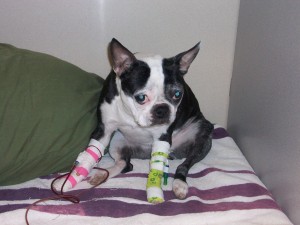 As a pet owner, nothing is as scary as a disease that can take our pets from us without warning, and sometimes even without cause. Immune-mediated hemolytic anemia (IMHA) is a condition that can do just that, though.
As a pet owner, nothing is as scary as a disease that can take our pets from us without warning, and sometimes even without cause. Immune-mediated hemolytic anemia (IMHA) is a condition that can do just that, though.
Although you’ve likely never heard of it, it’s important to learn what you need to know so that if you ever have a pet who is affected by IMHA you can take prompt and effective action.
What is Immune-Mediated Hemolytic Anemia in Dogs?
The name of the disease says it all. In pets affected by IMHA the immune system begins to destroy (hemolyze) the animal’s own red blood cells, resulting in anemia. Continue…
Pets and Pain
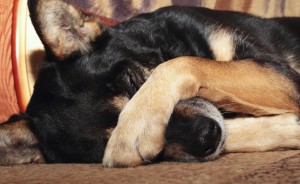 No one likes to see their beloved pet in any kind of discomfort, but it can be difficult to know how to help your pet with chronic or intense pain. Pets are not the same as people so their pain must be handled differently, and even treating a dog’s pain can be quite different from treating a cat’s pain.
No one likes to see their beloved pet in any kind of discomfort, but it can be difficult to know how to help your pet with chronic or intense pain. Pets are not the same as people so their pain must be handled differently, and even treating a dog’s pain can be quite different from treating a cat’s pain.
Knowing what to do in the event that your pet is suffering pain can help pet owners deal with this unfortunate but common occurrence of pet ownership.
Identifying Pet Pain
Sometimes, the biggest hurdle in addressing pet pain is knowing that it is there. Animals can be very stoic and many hide illness and injury very well. Be sure to pay attention to what is normal for your pet. Pets who are in pain may exhibit many or none of the following signs: Continue…
Enjoying A Safe Halloween With Your Pets
 Autumn provides ample opportunity to enjoy the outdoors and make memories with your pet. From the inimitable sound of autumn leaves crunching beneath the paws of your pooch to the poetic way your feline gazes at the early sunset, this season is a special one for all. However, with Halloween’s approach, pet owners should prepare for the possible risks that also await their pets. Sure, there is fun to be had and treats to enjoy (we’ll get to that in a bit) but caution is also necessary in order to best protect your pet and avoid pet emergencies. Read on to learn more.
Autumn provides ample opportunity to enjoy the outdoors and make memories with your pet. From the inimitable sound of autumn leaves crunching beneath the paws of your pooch to the poetic way your feline gazes at the early sunset, this season is a special one for all. However, with Halloween’s approach, pet owners should prepare for the possible risks that also await their pets. Sure, there is fun to be had and treats to enjoy (we’ll get to that in a bit) but caution is also necessary in order to best protect your pet and avoid pet emergencies. Read on to learn more.
Spooky Can Quickly Turn Scary
Many pet owners decide to keep their pets inside starting at dusk on All Hallows Eve. Pets (including black cats, of course) can be at risk when it comes to senseless Halloween pranks. Keep Your Pet Safe by keeping him or her indoors after dark. You can even create a warm and cozy den for them to snooze in away from the shrieks and chatter of trick-or-treaters. Continue…
City Cats and Cosmopolitan Canines: Keeping City Pets Safe
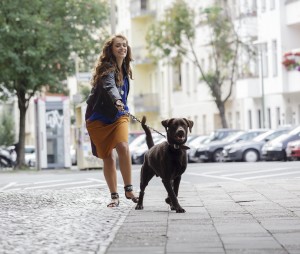 From the clamor of our favorite deli to the all-night-lights of the city, residing in an urban area can be thrilling for humans. Unfortunately, the fast-paced urban life we enjoy can present challenges to maintaining our city pet’s well-being and safety.
From the clamor of our favorite deli to the all-night-lights of the city, residing in an urban area can be thrilling for humans. Unfortunately, the fast-paced urban life we enjoy can present challenges to maintaining our city pet’s well-being and safety.
Increased traffic puts many pets at greater risk for getting hit by a car. More people living in a concentrated area can also be equated with dangers such as access to potential toxins, open garbage cans, and city-dwelling wildlife. High-rise apartments also present the risk of injuries from falls, and newer homes and apartments often lack suitable enclosed areas for safely exercising our pets.
But, we can take some steps to make life in the city more pet-friendly, while increasing our pet’s safety in such a fast-paced, people-filled environment. Continue…
Intratracheal Stents for Pets
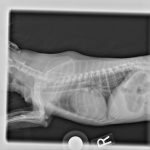 Unfortunately the diagnosis of a collapsing trachea is one all too many pet owners are familiar with. Small breed dogs, especially Toy Poodles, Pomeranians, Yorkshire Terriers, Chihuahuas, Maltese, and Pugs are predisposed to this condition. Many times pet owners learn to live with this problem and manage it medically, however some pets may need more aggressive treatment. We are happy to be able to offer tracheal stenting to these patients.
Unfortunately the diagnosis of a collapsing trachea is one all too many pet owners are familiar with. Small breed dogs, especially Toy Poodles, Pomeranians, Yorkshire Terriers, Chihuahuas, Maltese, and Pugs are predisposed to this condition. Many times pet owners learn to live with this problem and manage it medically, however some pets may need more aggressive treatment. We are happy to be able to offer tracheal stenting to these patients.
What Is Tracheal Collapse?
For some pets, breathing isn’t easy. The trachea, also known as the windpipe, connects the airway to the lungs. Normally it is a rigid tube made up of rings of cartilage that extend from the back of the throat, through the neck, and into the thorax. Continue…
An Evening for the Cliome Collins Cancer Fund
 We are so pleased to announce our annual fundraising event for the Cliome Collins Cancer Fund! Join us Friday, October 24th, 2014 at the Townsend Hotel in Birmingham for a buffet dinner, live and silent auction and the Bugaboo Whitt Memorial Raffle all to benefit TEAR Foundation.
We are so pleased to announce our annual fundraising event for the Cliome Collins Cancer Fund! Join us Friday, October 24th, 2014 at the Townsend Hotel in Birmingham for a buffet dinner, live and silent auction and the Bugaboo Whitt Memorial Raffle all to benefit TEAR Foundation.
You can purchase single tickets for $85 each or an entire table for $850 (includes champagne and introduction). It is going to be an exciting, fun and productive evening to help pets with cancer.
What is TEAR Foundation?
To help pet owners supplement the cost of veterinary care, Oakland Veterinary Referral Services developed The Emergency Animal Relief (TEAR) Foundation, which is a multi-faceted non-profit organization.
Firstly, we will give medical veterinary attention to animals brought in by “good samaritans”. Without owners to pay for their care, TEAR will help those animals with treatment, surgery or rehabilitation. Secondly, we also assist pet owners facing major financial hurdles as a result of their pet’s emergency medical costs. Lastly, TEAR sponsors clinical research to advance veterinary medicine and enhances community education.
TEAR touches so many lives, but animals that require and receive oncology care, however, do not meet TEAR’s funding criteria. Enter the Cliome Collins Cancer Fund… Continue…
Zoonotic Diseases and Your Pets
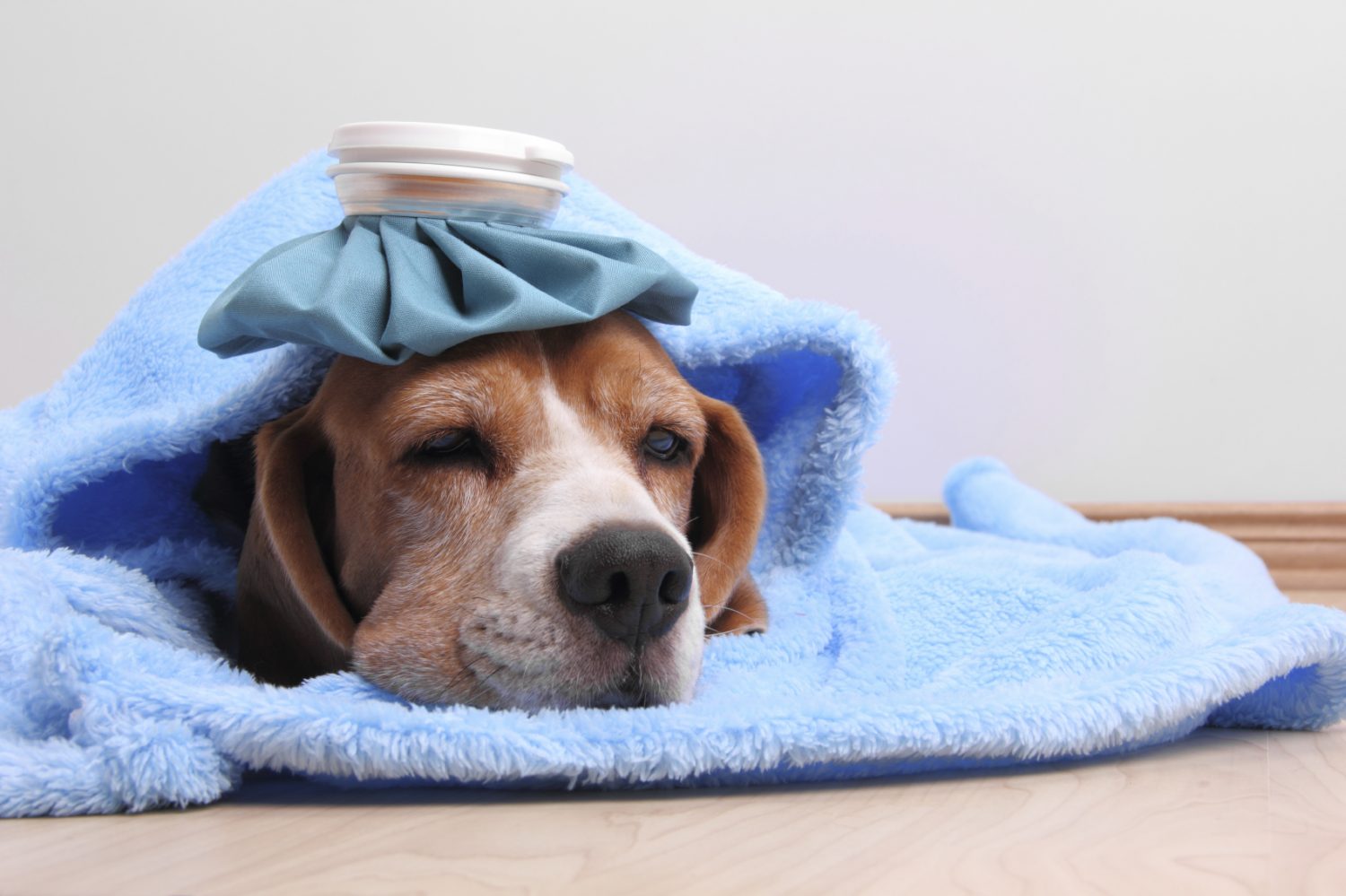 Are you familiar with the term ‘zoonotic’?
Are you familiar with the term ‘zoonotic’?
Zoonotic diseases are those which can be passed between animals and humans. And, with more and more homes in the United States having pets, it is important to understand these types of diseases and how to prevent them.
Rabies
Rabies may seem like a far-fetched possibility, but a lot of people forget how scary rabies can be, and how common the disease is. The rabies virus can affect any mammal and is transmitted through saliva. In all mammals it invades the central nervous system, causing neurological signs and eventually death.
There is no cure for rabies, so it is very important keep your pet up to date on his or her vaccination. Pets who are unvaccinated and potentially exposed to rabies are recommended by the CDC to be euthanized or kept under strict isolation for 6 months. Continue…
Hidden Dangers: Potential Pet Poisons May Be Lurking in Backpacks…
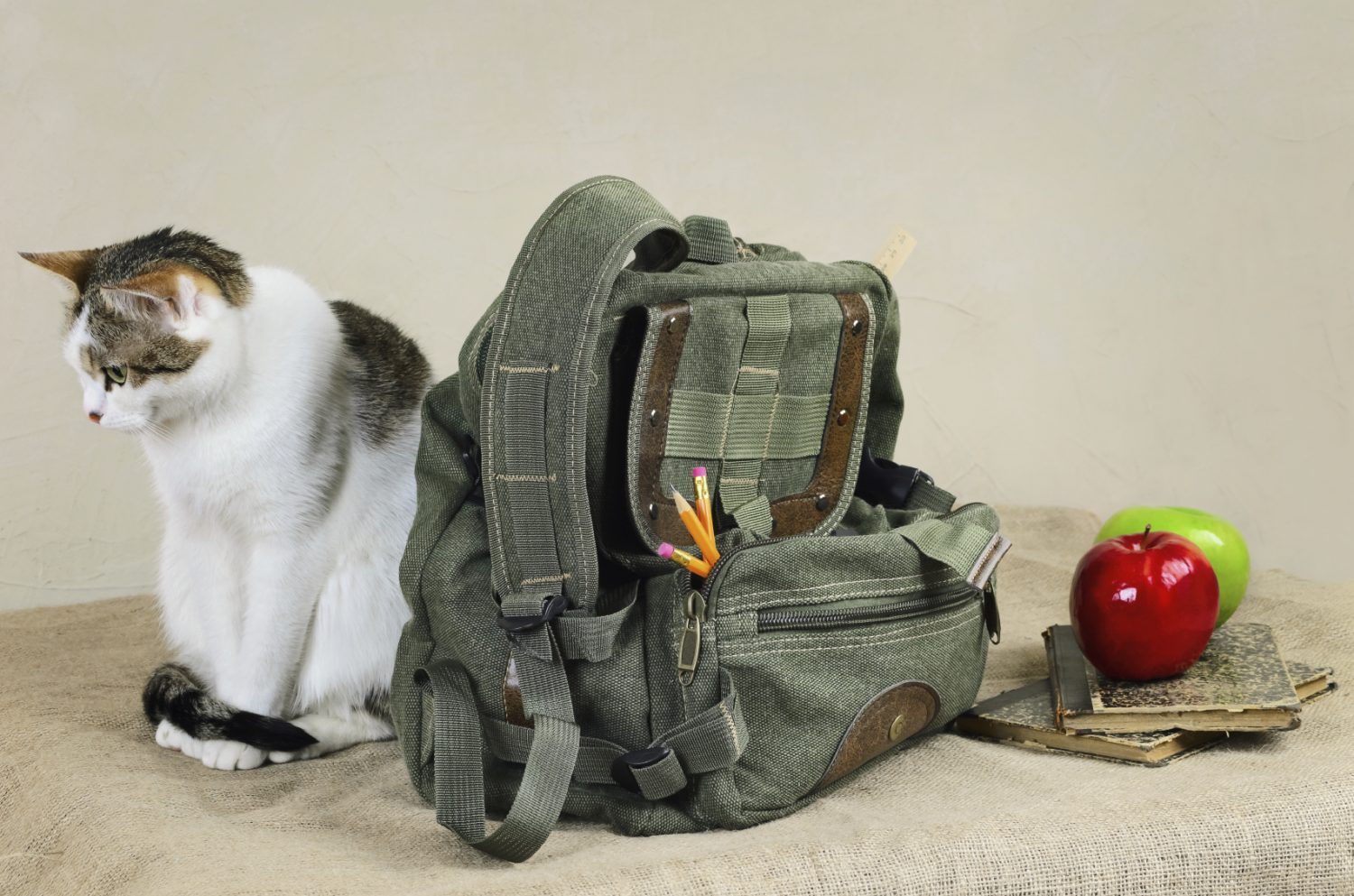 As a dedicated pet owner, we know you pay special attention to what your paw pals could potentially get into with the right recipe of curiosity, hunger and boredom. So, with kids back in school, we’d like to remind households of the hidden risks associated with pet poisons and what kids are bringing home in their backpacks and lunch bags.
As a dedicated pet owner, we know you pay special attention to what your paw pals could potentially get into with the right recipe of curiosity, hunger and boredom. So, with kids back in school, we’d like to remind households of the hidden risks associated with pet poisons and what kids are bringing home in their backpacks and lunch bags.
Can’t. Stop. Sniffing.
The smells we bring home could (and often do) drive our pets into an olfactory frenzy. Food smells, people smells, the scents from other animals… you name it, our pets are going to sniff it and catalogue it away in their brain. Your pet’s sniffer could lead to your child’s backpack where hopefully one would not discover any of the following potential pet poisons: Continue…
Canine Heroes: How Service Dogs Change Lives
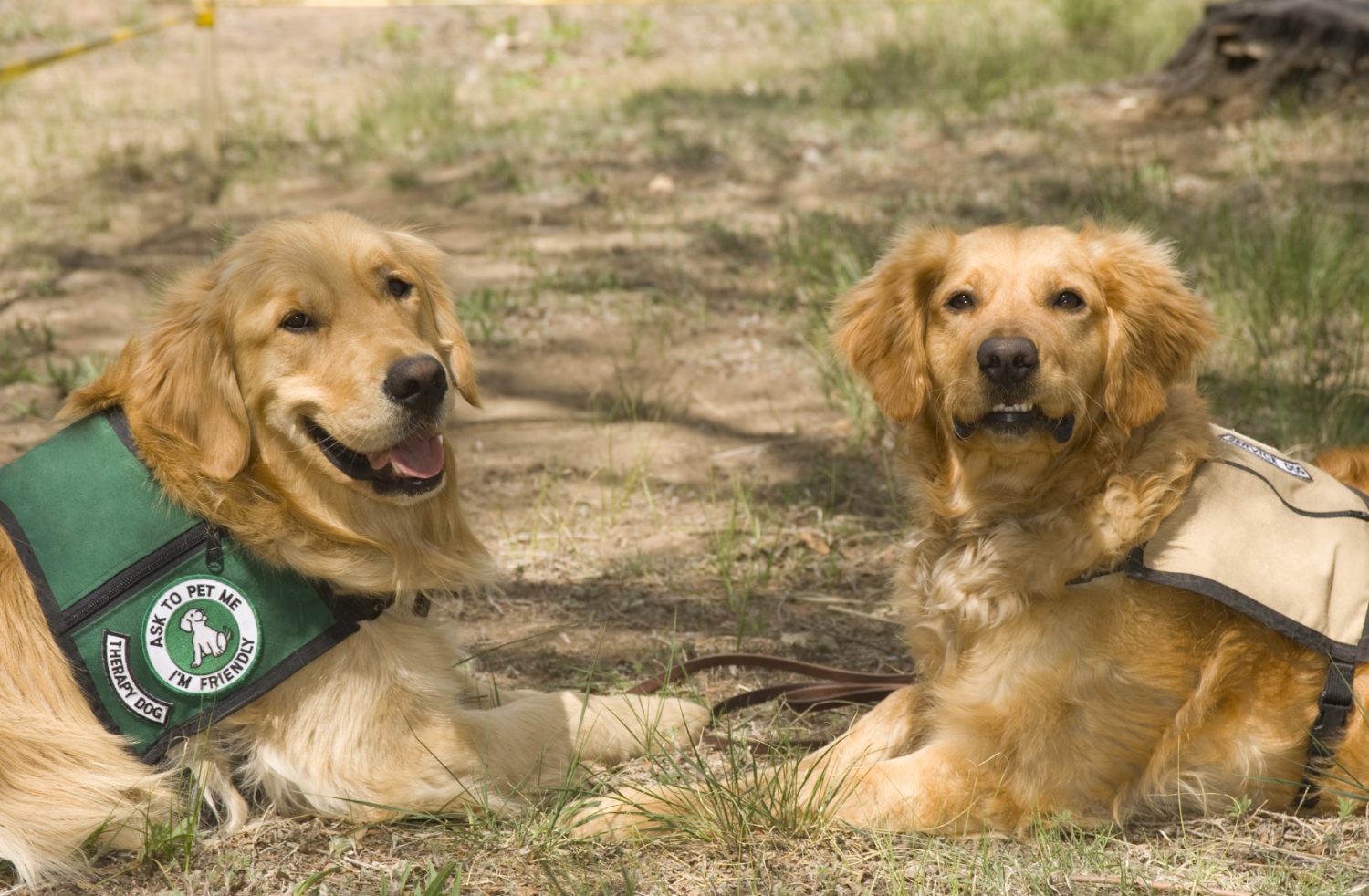 Most dog lovers know at least a couple of stories about a daring rescue by a four-legged hero or a dog who brightened a ward at the local children’s hospital. Dogs are amazing animals who are able to discern our deepest fears and respond to danger and distress. But, for the men, women, and children living with emotional or physical illnesses or disabilities, service dogs can be, in fact, life changing.
Most dog lovers know at least a couple of stories about a daring rescue by a four-legged hero or a dog who brightened a ward at the local children’s hospital. Dogs are amazing animals who are able to discern our deepest fears and respond to danger and distress. But, for the men, women, and children living with emotional or physical illnesses or disabilities, service dogs can be, in fact, life changing.
What is a Service Dog?
According to the Americans with Disabilities Act (ADA, 1990), a dog is considered a “service dog” if he or she has been “individually trained to do work or perform tasks for the benefit of a person with a disability”.
In order for a service dog to be matched with his or her human “handler”, he or she must go through rigorous training in a variety of areas that are dependent on the needs of the future human guardian. This could include assistance dogs trained specifically to respond to those with serious mental illness, to aid those Continue…
Dog Bite Prevention and Education
 Have you or a loved one ever experienced or witnessed a dog bite?
Have you or a loved one ever experienced or witnessed a dog bite?
It’s likely you have. According to the American Veterinary Medical Association (AVMA), more than 4.5 million people are bitten by dogs each year. Unfortunately, many of these incidents could have been prevented through proper training and socialization of the dog, beginning in puppyhood. Also by educating individuals on ways to mitigate a bite-occurrence from happening in the first place.
Of course, the first important step in creating a safe environment for your pet pooch and those around him or her is through basic and ethical obedience training. By providing training to your new puppy, you help reduce the risk of bites or aggressive or otherwise problematic behaviors down the road. And, since the majority of dog bites occur at home with a known canine, bite prevention education should begin at home and include all members of the family. Continue…


